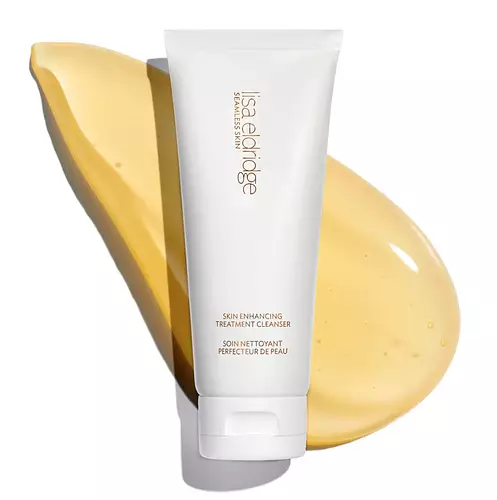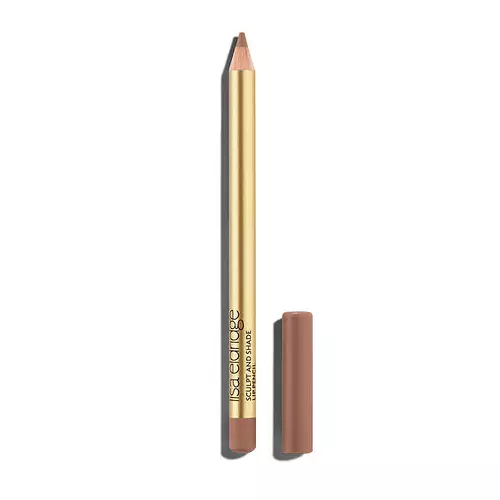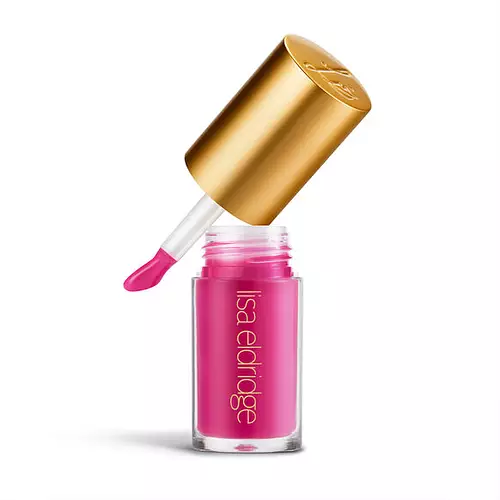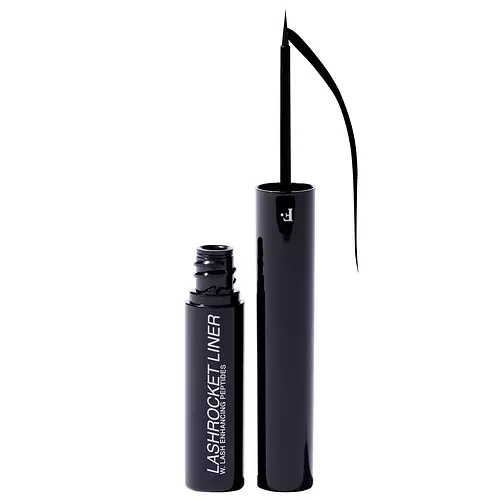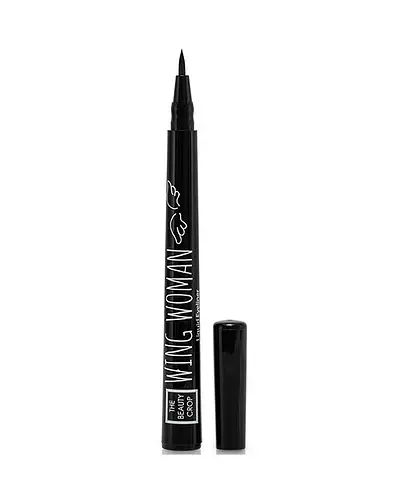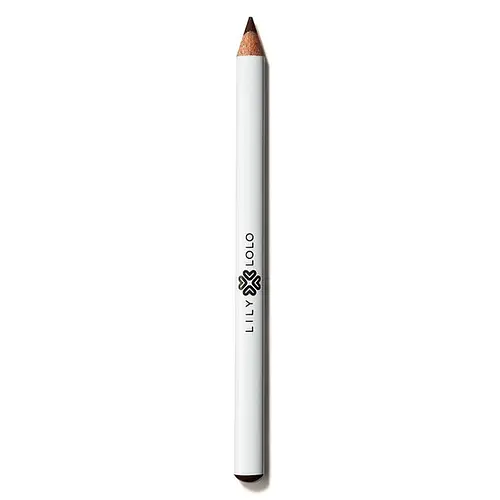
Lisa Eldridge Kitten Flick Liquid Eyeliner Ingredients Explained
Updated on April 19, 2024 Submitted by screamadelica
Overview
What it is
Eyeliner with 18 ingredients
Cool Features
It is vegan and reef safe
Free From
It doesn't contain any harsh alcohols, common allergens, fragrances, parabens or silicones
Fun facts
Lisa Eldridge is from United Kingdom.
We independently verify ingredients and our claims are backed by peer-reviewed research. Does this product need an update? Let us know.
Eyeliner with 18 ingredients
Quick info
You should know
Concerns
This product contains 1 ingredient that may have this attribute:
This product contains 1 ingredient that may have this attribute:
This product contains 1 ingredient that may have this attribute:
Ingredients 18
Water. It's the most common cosmetic ingredient of all. You'll usually see it at the top of ingredient lists, meaning that it makes up the largest part of the product.
Propanediol helps absorb ingredients into your skin, boosting their benefits. It can act as an emollient, making your skin softer. Propanediol can help products last longer by boosting the properties of preservatives within the formulation.
We don't have a description for Acrylates/Dimethylaminoethyl Methacrylate Copolymer.
1,2-Hexanediol is a multi-tasker ingredient. It acts as a preservative to increase shelf-life and can aid other preservatives in preventing microbe growth. 1,2-Hexanediol also helps the skin retain moisture as a humectant.
Peg-40 Hydrogenated Castor Oil is derived from castor oil and polyethylene glycol (PEG). It is used as a emollient and emulsifier.
Phenoxyethanol is a preservative that has germicide, antimicrobial, and aromatic properties. Studies show that phenoxyethanol can prevent germ and microbial growth. By itself, it has a scent that is similar to that of a rose.
This ingredient is a preservative with antimicrobial properties. It is the sodium salt of dehydroacetic acid.
Potassium Sorbate is a preservative used to prevent yeast and mold in products. It is commonly found in both cosmetic and food products.
Caprylyl Glycol is a humectant and emollient, meaning it attracts and preserves moisture.
Butylene Glycol (or BG) is used within cosmetic products for a few different reasons:
Sodium Lauryl Sulfate (SLS) is a sulfate with surfactant properties.
Water, Acrylates/Ethylhexyl Acrylate Copolymer, Propanediol, Laureth-21, Acrylates/Dimethylaminoethyl Methacrylate Copolymer, 1,2-Hexanediol, Peg-40 Hydrogenated Castor Oil, Phenoxyethanol, Sodium Dehydroacetate, Ammonium Acrylates Copolymer, Potassium Sorbate, Sodium Laureth-12 Sulfate, C11-15 Pareth-7, Caprylyl Glycol, Butylene Glycol, Sodium Lauryl Sulfate, Disodium Laureth Sulfosuccinate, CI 77267
Ingredient Ratings
Based on the number of likes and dislikes each ingredient has received.
Ingredients Explained
Water. It's the most common cosmetic ingredient of all. You'll usually see it at the top of ingredient lists, meaning that it makes up the largest part of the product.
So why is it so popular? Water most often acts as a solvent - this means that it helps dissolve other ingredients into the formulation.
You'll also recognize water as that liquid we all need to stay alive. Talk about multi-purpose! If you see this, drink a glass of water. Stay hydrated!
Learn more about WaterWe don't have a description for Acrylates/Ethylhexyl Acrylate Copolymer.
Propanediol helps absorb ingredients into your skin, boosting their benefits. It can act as an emollient, making your skin softer. Propanediol can help products last longer by boosting the properties of preservatives within the formulation.
Propanediol is not likely to cause sensitivity and considered safe to use.
It is derived from corn or petroleum with a clear color and no scent.
Learn more about PropanediolWe don't have a description for Laureth-21.
We don't have a description for Acrylates/Dimethylaminoethyl Methacrylate Copolymer.
1,2-Hexanediol is a multi-tasker ingredient. It acts as a preservative to increase shelf-life and can aid other preservatives in preventing microbe growth. 1,2-Hexanediol also helps the skin retain moisture as a humectant.
In products that are water-based, this ingredient can help stabilize perfumes and fragrances. It can also help make the texture of products softer and more smooth.
Peg-40 Hydrogenated Castor Oil is derived from castor oil and polyethylene glycol (PEG). It is used as a emollient and emulsifier.
As an emulsifier, it helps prevent ingredients from separating. It also helps make the other ingredients more soluble; it is often used to solubilize fragrances. This increases spreadability and elongates shelf life in a product.
Emollients help soothe and soften the skin. They do this by creating a protective film on your skin. This barrier helps trap moisture and keeps your skin hydrated. Emollients may be effective at treating dry or itchy skin.
This ingredient may or may not be vegan, depending on the source.
Peg-40 Hydrogenated Castor Oil may not be fungal-acne safe. We recommend speaking with a professional if you have any questions or concerns.
Learn more about Peg-40 Hydrogenated Castor OilPhenoxyethanol is a preservative that has germicide, antimicrobial, and aromatic properties. Studies show that phenoxyethanol can prevent germ and microbial growth. By itself, it has a scent that is similar to that of a rose.
It's often used in formulations along with Caprylyl Glycol to preserve the shelf life of products.
This ingredient is a preservative with antimicrobial properties. It is the sodium salt of dehydroacetic acid.
It is especially effective at preventing bacterial and fungal growth in low concentrations.
We don't have a description for Ammonium Acrylates Copolymer.
Potassium Sorbate is a preservative used to prevent yeast and mold in products. It is commonly found in both cosmetic and food products.
Potassium sorbate is potassium salt derived from sorbic acid. Sorbic acid is a natural antibiotic and effective against fungus.
Potassium sorbate and sorbic acid can be found in baked goods, cheeses, dried meats, dried fruit, ice cream, pickles, wine, yogurt, and more.
Potassium sorbate is often used with stronger preservatives.
Learn more about Potassium SorbateSodium Laureth-12 Sulfate is a type of sulfate.
We don't have a description for C11-15 Pareth-7.
Caprylyl Glycol is a humectant and emollient, meaning it attracts and preserves moisture.
It is a common ingredient in many products, especially those designed to hydrate skin. The primary benefits are retaining moisture, skin softening, and promoting a healthy skin barrier.
Though Caprylyl Glycol is an alcohol derived from fatty acids, it is not the kind that can dry out skin.
This ingredient is also used as a preservative to extend the life of products. It has slight antimicrobial properties.
Learn more about Caprylyl GlycolButylene Glycol (or BG) is used within cosmetic products for a few different reasons:
- It is a solvent, meaning that it helps to dissolve other ingredients. This also enhances the absorption of the product into one's skin.
- It is a humectant, which means that it helps attract moisture into the skin.
- It helps improve product application.
Overall, Butylene Glycol is a safe and well-rounded ingredient. It is unlikely to irritate skin, and works well with pretty much all other ingredients.
Sodium Lauryl Sulfate (SLS) is a sulfate with surfactant properties.
The surfactant property make it a great foam creator and cleansing agent. Surfactants help bind ingredients that normally do not mix.
Some studies have shown skin irritation due to prolonged SLS use.
Sodium Laureth Sulfate (SLES) is a milder version of SLS.
Learn more about Sodium Lauryl SulfateWe don't have a description for Disodium Laureth Sulfosuccinate.
We don't have a description for Ci 77267.
More Lisa Eldridge Products
See all Lisa Eldridge productsMore Eyeliners
See all eyelinersWe're dedicated to providing you with the most up-to-date and science-backed ingredient info out there.
The data we've presented on this page has been verified by a member of the SkinSort Team.
Read more about us


